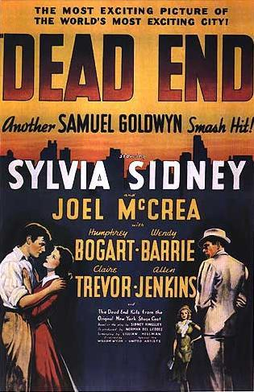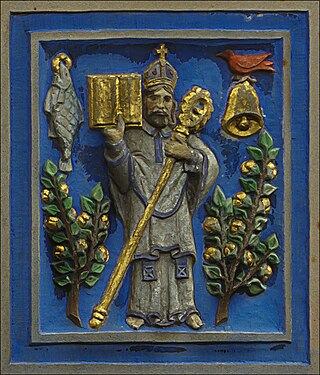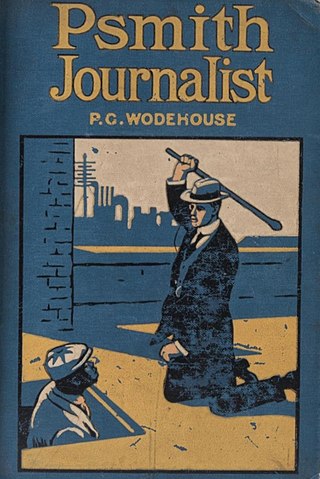
Van Diemen's Land was the colonial name of the island of Tasmania used by the British during the European exploration and colonisation of Australia in the 19th century. The island was previously discovered and named by the Dutch in 1642. Explorer Abel Tasman discovered the island, working under the sponsorship of Anthony van Diemen, the Governor-General of the Dutch East Indies. The British retained the name when they established a settlement in 1803 before it became a separate colony in 1825. Its penal colonies became notorious destinations for the transportation of convicts due to the harsh environment, isolation and reputation for being inescapable.

Dead End is a 1937 American crime drama film directed by William Wyler. It is an adaptation of the Sidney Kingsley 1935 Broadway play of the same name. It stars Sylvia Sidney, Joel McCrea, Humphrey Bogart, Wendy Barrie, and Claire Trevor. It was the first film appearance of the acting group known as the Dead End Kids.

The Thirty-Nine Steps is a 1915 adventure novel by the Scottish author John Buchan, first published by William Blackwood and Sons, Edinburgh. It was serialized in All-Story Weekly issues of 5 and 12 June 1915, and in Blackwood's Magazine between July and September 1915, before being published in book form in October of that year. It is the first of five novels featuring Richard Hannay, an all-action hero with a stiff upper lip and a knack for getting himself out of tricky situations.

Kentigern, known as Mungo, was a missionary in the Brittonic Kingdom of Strathclyde in the late sixth century, and the founder and patron saint of the city of Glasgow.
The Gorbals is an area in the city of Glasgow, Scotland, and former burgh, on the south bank of the River Clyde. By the late 19th century, it had become densely populated; rural migrants and immigrants were attracted by the new industries and employment opportunities of Glasgow. At its peak, during the 1930s, the wider Gorbals district had swollen in population to an estimated 90,000 residents, giving the area a very high population density of around 40 000/km2. Redevelopment after WWII has taken many turns, and the area's population is substantially smaller today. The Gorbals was also home to 16 high-rise flat blocks; only six are standing as of 2024, and two are planned for demolition around Easter time 2025.

Ellen Anderson Gholson Glasgow was an American novelist who won the Pulitzer Prize for the Novel in 1942 for her novel In This Our Life. She published 20 novels, as well as short stories, to critical acclaim. A lifelong Virginian, Glasgow portrayed the changing world of the contemporary South in a realistic manner, differing from the idealistic escapism that characterized Southern literature after Reconstruction.

Pollok is a large housing estate on the south-western side of the city of Glasgow, Scotland. The estate was built either side of World War II to house families from the overcrowded inner city. Housing 30,000 at its peak, its population has since declined due to the replacement of substandard housing with lower-density accommodation. As of 2021, the population was recorded at 81,951 people.

Kate Barker, better known as Ma Barker, was the mother of several American criminals who ran the Barker–Karpis Gang during the "public enemy era" when the exploits of gangs of criminals in the Midwestern United States gripped the American people and press. She traveled with her sons during their criminal careers.

Charles Arthur Floyd, nicknamed Pretty Boy Floyd, was an American bank robber. He operated in the West and Central states, and his criminal exploits gained widespread press coverage in the 1930s. He was seen positively by the public because it was falsely believed that during robberies he burned mortgage documents, freeing many people from their debts. He was pursued and killed by a group of Bureau of Investigation agents led by Melvin Purvis. Historians have speculated as to which officers were at the event, but accounts document that local officers Robert "Pete" Pyle and George Curran were present at his fatal shooting and also at his embalming. Floyd has continued to be a familiar figure in American popular culture, sometimes seen as notorious, other times portrayed as a tragic figure, even a victim of the hard times of the Great Depression in the United States. Floyd is viewed by many as a prime example of a real life anti-hero.

Black Friday is a 1940 American science fiction horror film starring Boris Karloff and Bela Lugosi.

Psmith, Journalist is a novel by P. G. Wodehouse, first released in the United Kingdom as a serial in The Captain magazine between October 1909 and February 1910, and published in book form in the UK on 29 September 1915, by Adam & Charles Black, London, and, from imported sheets, by Macmillan, New York, later that year.

Barrowfield is a neighbourhood of Glasgow, Scotland, close to Celtic Park, home of Celtic F.C., which lies immediately to the east. It is bounded by the A89 road (Gallowgate) to the north and the A74 to the south.
Sidney Kingsley was an American dramatist. He received the Pulitzer Prize for Drama for his play Men in White in 1934.
Robert McLellan OBE (1907–1985) was a Scottish Renaissance dramatist, writer and poet and a leading figure in the twentieth century movement to recover Scotland’s distinctive theatrical traditions. He found popular success with plays and stories written in his native Scots tongue and is regarded, alongside William Lorimer, as one of the most important modern exponents of fine prose in the language.

Thomas Annan (1829–1887) was a Scottish photographer, notable for being the first to record the bad housing conditions of the poor.

The Glasgow razor gangs were violent gangs that existed in the East End and South Side of Glasgow, Scotland in the late 1920s and 1930s and were named after their weapon of choice. H. Kingsley Long's novel No Mean City (1935) contains a fictionalised account of these gangs.

The Barker–Karpis Gang was one of the longest-lived criminal gangs during the Depression Era, spanning from 1931 to 1935. The gang was founded by Fred Barker and Alvin Karpis, and later joined by Fred's brother Arthur "Doc" Barker. Along with the three core members, the gang's network spanned up to 25 members at one point.

City Across the River is a 1949 American film noir crime film directed by Maxwell Shane and starring Peter Fernandez, Stephen McNally, Thelma Ritter, Sue England, Barbara Whiting, Luis Van Rooten and Jeff Corey. The screenplay is based on the novel The Amboy Dukes by Irving Shulman.
Dead End is a stage play written by playwright Sidney Kingsley. It premiered on Broadway in October 1935 and ran for two years. It is notable for being the first project to feature the Dead End Kids, who would go on to star, under various names, in 89 films and three serials. These names include Dead End Kids, Little Tough Guys, the East Side Kids and the Bowery Boys. The original play and the 1937 film adaptation were grim dramas set in a poverty-stricken riverside neighborhood in New York City, where the boys look on reform school as a learning opportunity. They played similar characters in several films; their later pictures are comedies.

Frederick John Niven, was a Canadian novelist of Scottish heritage. A prolific author, he produced over thirty works of fiction, an autobiography, poetry, essays, and pieces of journalism.
















